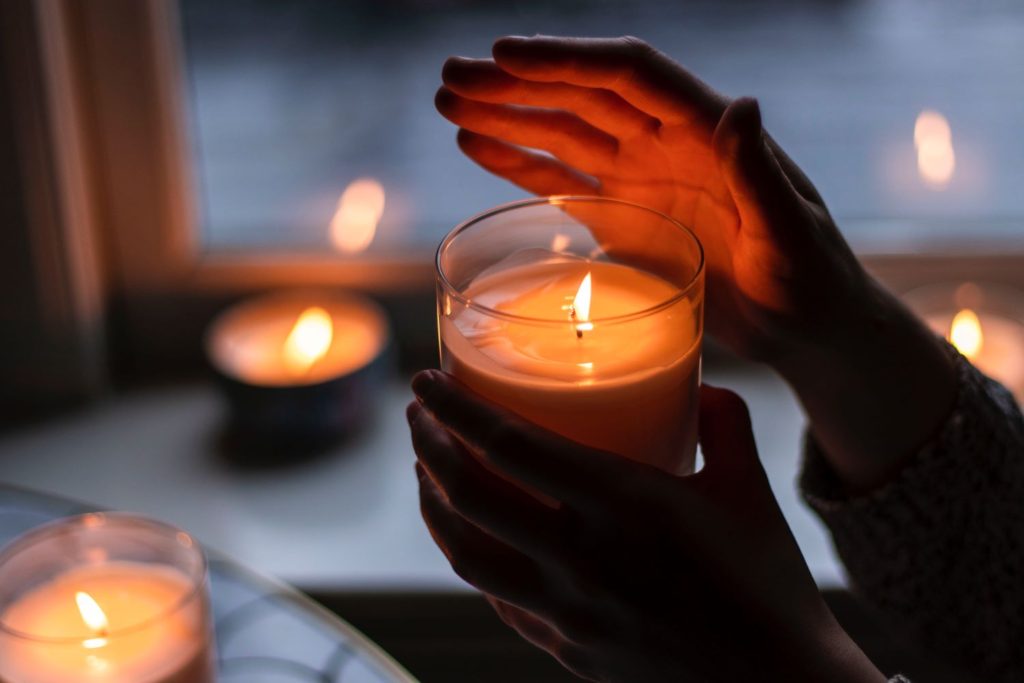Henri Nouwen (Dutch Catholic priest, professor, writer and theologian) wrote, “The great spiritual call of the Beloved Children of God is to pull their brokenness away from the shadow of the curse and put it under the light of the blessing.” We all experience woundedness and brokenness in life: death, grief, material loss, marital discord, domestic violence, parenting challenges, abuse – these are all sources of our wounds and brokenness. Nobody escapes being wounded. What then shall we do with these emotional, physical, mental, and spiritual wounds?
The Trauma of Abuse
We grow up singing the all too familiar ditty, “This little light of mine, I’m gonna let it shine…..Hide it under a bushel? No! I’m gonna let it shine”. We have no problem understanding what that means. Yet, when we need to remember it the most is when we totally miss the significance of what we sing. Our wounds and our brokenness were never meant to be hidden under a bushel. If we can just remember that there is no shame in being wounded or broken, we will not try to hide away from the world. Instinctively, we choose to hide because we cannot understand why we endured certain trauma; we look within ourselves for blame. Our trauma-influenced brains cannot grasp the reality that what was “done” to us was in fact done to us. We endured that trauma for a long time under the misguided assumption that we can figure out a way to make it better. We keep it a secret hidden from the rest of the world because we are convinced nobody would believe us. In context of what you know, you do the best with what you have been given. But when you break free from the TRAUMA OF ABUSE, you find out the truth.

The Trauma of Betrayal
Abusive people usually have a repetitive pattern of behavior, and in narcissistic abuse you will discover that their attitudes and even the words they use to abuse and manipulate come out of the same manual. What you lived and endured was not a nuance of your relationship – it was the perverted proclivities of a predator that were perpetuated by the complicit silence of many. We are oblivious to the fact that our abuser has in fact been in the habit of abusing for a long time. Many sing his praises, many keep his secrets for him, many become his protectors, many who know the truth take on the position of spectators wagering how long you will survive. This is when you feel betrayed by those who professed to love you and be your friend – your abuser and all who chose silence. You now sink deep into the TRAUMA OF BETRAYAL.
You can only choose to hide; you do not know whom to trust – you’ve learned the hard way that many you trusted violated that trust. You will have the Confidentiality Clause used as a reason why the vile history of your abuser was not revealed to you. You will hear the words “I did not know” by many who refused to be informed (this is a strategy called Plausible Deniability). You will hear absolute shock from some who were truly and honestly deceived like you were. Soon you will realize that this is a story that has repeated itself in the lives of many women, their lives destroyed and their children forever marred by the stain of narcissistic abuse and domestic violence.
This is when you need other people to rise up, protect, and defend you.
Stop Hiding, Begin Healing
If you can get to a place where your wounds no longer make you hide in shame, but rather you decide to rise up and let your wounds be seen, you can take the stigma and mystery around your abuse out from under the bushel and let it shine. As you heal, and you will heal, you will become a mighty beacon to others who have endured similar woundedness and brokenness. When you find yourself surrounded by people who reach out to you just to be there for you – you heal. When friends choose not to be prescriptive in their suggestions, but rather receptive in their attitude and compassionate in their disposition – you heal. Henri Nouwen states, “When we honestly ask ourselves which person in our lives means the most to us, we often find that it is those who, instead of giving advice, solutions, or cures, have chosen rather to share our pain and touch our wounds with a warm and tender hand. The friend who can be silent with us in a moment of despair or confusion, who can stay with us in an hour of grief and bereavement, who can tolerate not knowing, not curing, not healing and face with us the reality of our powerlessness, that is a friend who cares.”
Nothing about what you endured was designed to bless you, it was meant to destroy you. However, you pulling it out from under the shadow of the curse is what enables you to find a way to live your life in such a manner as to be a blessing to others who have endured similar trauma.
Cynthia Mascarenhas
The Trauma of Death
Grief from loss – the death of a loved one – is yet another source of trauma. The ripping away of one half of you, the person who made you whole, is profoundly traumatic. It is so much more than just sadness. It is almost as tangible as the phantom pains of an amputated limb. The TRAUMA OF DEATH leaves behind a darkness that is beyond description. For those who have not experienced it, it is pointless us trying to explain or you trying to understand. Just be present; wherever the grieving person is, that’s where you should stay. It is not your job to move her/him along in their journey but rather to love them in their woundedness and brokenness. That’s when they will move along in their journey. Don’t throw your psychology book at them and don’t throw the Bible at them; grief is not reasonable or rational. But it is valid. Many will get this wrong because we all want to “fix” situations and people. Not everything can be fixed. Sometimes, our brokenness barely allows us to hold things together.
This is when the most assuring words one can ever hear are reminders that you are loved and held together by a God who is near the broken-hearted. Just knowing that somehow you are loved and the favor of God rests upon you will carry you through many a season of trauma. It is the constant that carries you through the many vicissitudes of trauma. As you relive your trauma in the conscious and subconscious, pray, No! Beg for a peace that is unassailable, unbreakable, and transcendent. It may come and go, but once you have tasted it even momentarily you will understand that you must fight to repeatedly inhabit that place of peace.
The Key to Survival: Forgiveness
The hardest thing to do but the most critical thing you will do in this journey of surviving trauma is FORGIVENESS. You will not forget, but you will remember differently. You will remember the pain, you will remember the helplessness, you will remember the betrayal – but you will actively seek to deny the root of bitterness a place in your heart. As you remember and as you heal, you will move your brokenness away from under the shadow of the curse and put it under the light of blessing. Nothing about what you endured was designed to bless you, it was meant to destroy you. However, you pulling it out from under the shadow of the curse is what enables you to find a way to live your life in such a manner as to be a blessing to others who have endured similar trauma.
Ralph Waldo Emerson, made an extremely anti-hedonistic statement when he said, “The purpose of life is not to be happy. It is to be useful, to be honorable, to be compassionate, to have it make some difference that you have lived and lived well.”
I pray you find your purpose – one that is outside of yourself. Therein lies happiness. Live well.





0 Comments